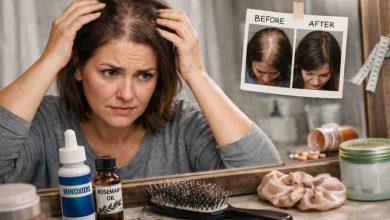
Low Testosterone: 11 Hard Truths That Kinda Changed My Life

Honestly… I Didn’t See This Coming
I used to think Low Testosterone was one of those “other guys” problems.
You know the type — older dudes, couch-heavy lifestyle, zero sleep, bad food, maybe beer every night. Not me. I was working, moving, trying to eat “okay-ish.” I still felt young in my head.
But my body?
Yeah… it had other plans.
It started small. Subtle stuff. Things I brushed off for way too long.
Waking up tired even after sleeping 7–8 hours.
No real drive. Like, zero fire.
Work felt heavier. Gym felt pointless.
Mood swings that didn’t feel like me.
And the worst part? I didn’t connect the dots. Not even close.
Low Testosterone wasn’t on my radar. Not at all.
The Quiet Symptoms No One Warns You About
Most articles talk about the obvious stuff. Muscle loss. Libido issues.
Sure, those matter. But that’s not what hit me first.
What actually freaked me out were the mental changes.
-
Brain fog that wouldn’t lift
-
Random anxiety, for no clear reason
-
Feeling weirdly detached from things I used to care about
-
Confidence just… evaporating
It wasn’t dramatic. That’s the scary part.
It was like slowly turning down the volume on life.
From what I’ve seen — and yeah, from talking to other guys later — this is super common in the US and Canada. High stress, long work hours, screens everywhere, bad sleep. Perfect storm.
Still, I kept telling myself: “You’re just tired. Everyone’s tired.”
Not gonna lie, that lie cost me months.
The Moment I Finally Took It Seriously
The breaking point wasn’t physical. It was emotional.
I remember sitting in my car one morning, engine running, just staring at nothing. No sadness exactly. Just… blank. Flat. Like someone unplugged something important.
That scared me.
So I did what I should’ve done earlier — I got blood work. Real labs. Not some sketchy online quiz.
When the results came back, the doctor paused. That pause told me everything.
My testosterone levels were technically “normal” — but barely. Low end. The kind of low that ruins quality of life while still flying under the radar.
And yeah, that pissed me off a little.
Why “Normal Range” Is Kinda Misleading
Here’s something I wish someone told me sooner:
Normal doesn’t mean optimal.
In North America, lab ranges are wide. REALLY wide. They include unhealthy people just to create averages.
So if you’re barely scraping the bottom, you’re told, “You’re fine.”
But you don’t feel fine.
That disconnect messes with your head. Makes you doubt yourself.
From my exp at least, that’s one of the most frustrating parts of dealing with Low Testosterone.
You know something’s wrong… but you’re told it isn’t.
What Low Testosterone Actually Did to My Daily Life
Let me be specific, because vague advice never helped me.
Energy (or lack of it)
This wasn’t “sleepy.”
It was bone-deep tired.
Even coffee stopped working. I could drink two cups and still want to lie down.
Motivation
I didn’t stop caring. It felt worse than that.
I wanted to care, but couldn’t access the feeling.
Projects stalled. Goals felt distant. Everything felt heavier than it should.
Gym & Body Changes
I was working out, but nothing responded.
-
Pumps disappeared
-
Strength stalled
-
Recovery took forever
And yes, fat crept in. Mostly around the midsection. That one hurt the ego, not gonna lie.
Mood & Relationships
This part doesn’t get enough attention.
Low Testosterone made me irritable. Quietly irritable. Snappy sometimes. Withdrawn other times.
People noticed before I did.
That one stung.
What I Tried First (And What Didn’t Work)
Before meds, before anything drastic, I tried fixing things naturally. Some helped. Some didn’t. Being real here.
Sleep (This One Matters More Than You Think)
I thought I slept enough.
Turns out, I slept poorly.
-
Late screens
-
Inconsistent bedtimes
-
Weekend sleep chaos
Fixing sleep didn’t magically cure everything, but it did help stabilize my mood a bit.
Diet Tweaks
I added:
-
More protein
-
Healthy fats (eggs, olive oil, nuts)
-
Less sugar
Did it boost testosterone a lot?
Eh. Hard to say.
But I felt slightly better. Which counts.
Supplements (Mixed Bag)
I tried zinc, magnesium, vitamin D.
Results? Mild. Very mild.
If your levels are seriously low, supplements alone probably won’t save you. That was my reality.
Stress Reduction (Easier Said Than Done)
Meditation helped my anxiety more than my hormones.
Still worth it, though.
The Hard Truth: Sometimes Lifestyle Isn’t Enough
This part is uncomfortable to admit.
I wanted the “natural fix” to work. Badly.
But after months of effort, progress was slow. Painfully slow.
My labs barely moved.
That’s when I had to accept something I didn’t want to hear:
For some men, especially in high-stress US/CA lifestyles, Low Testosterone isn’t just a discipline issue. It’s physiological.
Age, genetics, endocrine disruption — it’s messy.
No shame in that. Took me a while to believe it.
Exploring Medical Options (Without the Hype)
I’m not here to push treatments. Just sharing what I learned.
Testosterone Replacement Therapy (TRT)
This scared me at first.
Online forums are extreme — either “TRT saved my life” or “TRT ruined me forever.”
Reality, as usual, lives in the middle.
TRT can help. A LOT.
But it’s a commitment. Not a shortcut.
Pros I noticed (after careful monitoring):
-
Energy came back, slowly
-
Mood stabilized
-
Focus improved
-
Gym response returned
Cons (being honest):
-
Regular blood tests
-
Dialing in dosage is annoying
-
Fertility considerations (big one)
It’s not magic. But for me, it restored a baseline I hadn’t felt in years.
Things No One Tells You About Fixing Low Testosterone
This is the stuff blogs skip.
You Don’t Become a New Person Overnight
It’s gradual.
Some days you feel great.
Some days you wonder if it’s working at all.
Patience matters more than hype.
Mental Health Improves First (Usually)
For me, mood and clarity improved before physical changes.
That surprised me.
You Still Have to Do the Work
Hormones don’t replace habits.
If you eat trash, sleep 4 hours, and never move — no treatment saves you.
Ask me how I know… yeah.
“Don’t Make My Mistake” Moments
Learn from my mess-ups:
-
Waiting too long to test
-
Expecting quick fixes
-
Comparing myself to influencers
Low Testosterone recovery isn’t linear. Stop treating it like a challenge video.
Why This Matters More in the US & Canada
Let’s be real.
North American life is brutal on hormones.
-
Chronic stress
-
Long screen hours
-
Ultra-processed food
-
Poor sleep culture
We normalize burnout. Then act shocked when bodies rebel.
If you’re in the US or Canada and feel “off” — don’t ignore it.
You’re not weak. You’re responding to pressure.
Where I’m At Now (Real Talk)
I’m not “perfect.”
Some days I’m tired. Some days motivation dips. That’s life.
But I feel like myself again.
The fog lifted. The edge came back. I laugh easier. Care more. Show up better.
Low Testosterone didn’t define me — but understanding it changed me.
And yeah, I wish I started sooner.
FAQs: Stuff People Keep Asking Me
How do you know if you have Low Testosterone?
For me, it was energy, mood, and motivation — not just physical signs. Blood tests confirmed it.
Can lifestyle changes alone fix it?
Sometimes. Mild cases, yes. Deeper deficits? Maybe not fully.
How long did it take to feel better?
Mental improvements showed in weeks. Physical stuff took months. Be patient.
Is treatment safe long-term?
With proper medical supervision, it can be. Skipping labs is the real danger.
Does Low Testosterone affect younger men?
Absolutely. Stress, sleep loss, and diet don’t care about age.
So yeah… Low Testosterone isn’t some dramatic diagnosis.
It’s quieter than that.
But left unchecked? It slowly steals pieces of you.
For me, fixing it wasn’t about muscles or ego.
It was about feeling alive again.
And honestly?
That was worth every awkward appointment, every doubt, every adjustment.
If you’re questioning it — listen to that voice. It might be right.



